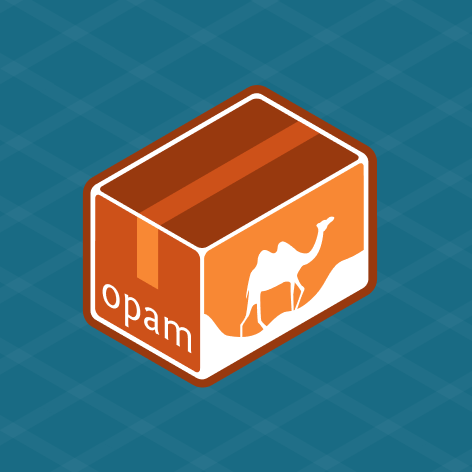The Opam 2.0 cheatsheet, with a new theme!
Earlier, we dusted-off our Language and Stdlib cheatsheets, for teachers and students. With more time, we managed to design an Opam 2.0 cheat-sheet we are proud of. It is organized into two pages:
- The everyday average Opam use:
- Installation, Configuration, Switches, Allowed URL formats, Packages, Exploring, Package pinning, Working with local pins, Sharing a dev setup, Configuring remotes.
- Peculiar advanced use cases (opam-managed project, publishing, repository maintenance, etc.):
- Package definition files, Some optional fields, Expressions, External dependencies, Publishing, Repository administration.
Moreover, with the help of listings, we tried the use of colors for better readability. And we left some blank space for your own peculiar commands. Two versions are available (PDF):
- The Opam cheatsheet in black & white
- The Opam cheatsheet in colour.
In any case do not hesitate to send us your suggestions on github:
- Louis and Raja, the lead Opam developers, designed this cheatsheet so as to shed light on some important features (some I even discovered even though I speak daily with them!). If a command you find useful is not mentioned, let us know and we’ll add it. Feel free to ask for clarification and/or expansion of the manual!
Happy hacking!
Note: If you come to one of our training sessions, you’ll get a free cheatsheet! Isn’t that a bargain?
Au sujet d'OCamlPro :
OCamlPro développe des applications à haute valeur ajoutée depuis plus de 10 ans, en utilisant les langages les plus avancés, tels que OCaml, Rust, et WebAssembly (Wasm) visant aussi bien rapidité de développement que robustesse, et en ciblant les domaines les plus exigeants (méthodes formelles, cybersécurité, systèmes distribués/blockchain, conception de DSLs). Fort de plus de 20 ingénieurs R&D, avec une expertise unique sur les langages de programmation, aussi bien théorique (plus de 80% de nos ingénieurs ont une thèse en informatique) que pratique (participation active au développement de plusieurs compilateurs open-source, prototypage de la blockchain Tezos, etc.), diversifiée (OCaml, Rust, Cobol, Python, Scilab, C/C++, etc.) et appliquée à de multiples domaines. Nous dispensons également des [formations sur mesure certifiées Qualiopi sur OCaml, Rust, et les méthodes formelles] (https://training.ocamlpro.com/) Pour nous contacter : contact@ocamlpro.com.
Articles les plus récents
2025
2024
- opam 2.3.0 release!
- Optimisation de Geneweb, 1er logiciel français de Généalogie depuis près de 30 ans
- Alt-Ergo 2.6 is Out!
- Flambda2 Ep. 3: Speculative Inlining
- opam 2.2.0 release!
- Flambda2 Ep. 2: Loopifying Tail-Recursive Functions
- Fixing and Optimizing the GnuCOBOL Preprocessor
- OCaml Backtraces on Uncaught Exceptions
- Opam 102: Pinning Packages
- Flambda2 Ep. 1: Foundational Design Decisions
- Behind the Scenes of the OCaml Optimising Compiler Flambda2: Introduction and Roadmap
- Lean 4: When Sound Programs become a Choice
- Opam 101: The First Steps
2023
